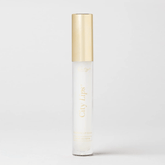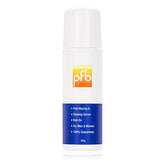Hair Removal Tips
Our society has placed a great deal of social and cultural importance on hair. Hair where hair oughtn't be, or unwanted hair that exceeds aesthetic standard has caused much concerns among millions of women, and a growing number of men. They use millions of dollars each year on products and services that promise smooth, silky skin free of "unsightly," "excessive" body hair.
There are a variety of home-use hair removal products are available over the counter, including shaving creams, foams, and gels; waxes; chemical depilatories; and electrolysis devices. Professionals at beauty and skin care salons and in dermatologists' offices provide waxing, electrolysis, and laser treatments to remove hair.
The safety, effectiveness, cost, and ease of use of the various methods, as well as the area and amount of hair growth to be treated, are some factors to weigh in choosing a method and deciding whether to go to a professional. Often, different methods are better suited for different areas.
Shaving
Shaving is one of the simplest and most commonly used hair removal methods, but lasts the shortest time because hair is removed at skin level only and hair reappears in one to four days. In addition, shaving actually stimulates the hair follicle which speeds up the regrowth process causing hair to grow not only faster, but thicker and coarser than before.
To shave, let your hair hydrate before shaving and use shaving gel or lotion help keep the hair erect and reduce friction allowing the blade to glide easily and smoothly over the skin.
For the cleanest shave, always shave in the opposite direction of hair growth.
Use a moisturizer on your skin after shaving to help soothe and calm the skin. Wait half an hour before using deodorant after shaving your underarms.
Do not share your razor orp shaver with anyone else to avoid skin infections.
Waxing
With waxing, warm or cold wax is applied to the skin encasing each hair. The wax is then stripped off to remove hair from below the skin's surface. Results can last from six to eight weeks.
Waxing is easy to do at home. Just make sure your hair in about one-quarter inch long so the wax can grip it.
Heat the wax carefully so as not to overheat and thus burn the skin when applying. Test on a small area first. Don't use hot wax if your skin is sensitive.
When applying the cotton strip over the wax, rub in the same direction as the hair growth.
Pull back with a rapid movement close to the skin. Do not pull up or out which increases the pain and leaves patchy areas.
Be relaxed during the waxing procedure. When you are tense, the follicle closes and the wax doesn't reach the root of the hair.
Sugaring
Sugaring is an ancient hair-removal practice that's gaining popularity today because the effects are similar to waxing, but causing less skin irritation. And the sugar tends to stick only to the hairs, not to the skin, causing less discomfort.
Always apply the sugaring paste in the direction of the hair growth, and then pull the strip back sharply against the direction of the hair growth when finish. Do not lift the strip up or out away from the skin.
Depilatories
A depilatory cream or lotion chemically dissolves hair at the skin's surface, and is then rinsed away with water. This method is much more feminine and leaves the skin silky smooth.
If you're in a hurry to remove unwanted hair, depilatory creams are a good bet. They're easy to apply and effective in the short run by removing hair just below the skin's surface.
For best results, first apply a warm washcloth to the area; which softens the hair and opens the follicles so the depilatory can be better absorbed. Never exceed the recommended time for leaving the cream on the skin. When removing the cream, use a washcloth to wipe it off instead of simply rinsing as additional pressure can help remove more of the hair shaft.
Use cream formula for areas like bikini line or underarms, because it's thicker and won't drip, whereas a spreadable lotion is best for legs since you're covering a broader area. For mustache, use a depilatory that's specifically made for the face since it will contain gentler ingredients.
Always do a patch test first: apply a nickle-size amount of cream, wait 15 minutes before washing off, then check for any redness or bumps before proceeding to a larger area like legs, face, underarms, or bikini line.
Depilatories are the chemicals that "burn" off hair, which can also cause skin irritation. Those with very sensitive skin may not be able to tolerate depilatory creams. Never use depilatory creams around the eye area. Never use a depilatory where there are wounds on the skin such as cuts or abrasions or on skin sensitive from sunburn.
Epilation
If you are epilating for the first time or if you haven't epilated for a longer period of time, it is a good idea to shave or pre-cut the longer hairs first (with the shaver head). The ideal length of hair for epilating is between 2 and 5 mm. Make sure that your skin is completely dry and free from any grease or creams.
To use an epilator more effectively, you have to hold the device at an 80 degree angle. The epilator head is comprised of little tweezers that open and close. The head will spin, tweezers will open, grab the hair, close, and pull the hair from the root. The tweezers all close at one point on the head. While the machine is turned off, spin the head with a finger, and you will see the tweezers open and closing.
If the machine isn't held at the correct angle where the tweezers close and clamp down on the hair, the hairs are cut, not going to be removed.
How to find the correct angle: hold the machine so that the head is touching the skin and the machine is being held straight up in the air. Then you need to tilt the machine just a little towards you. It will then be held at an 80 degree angle. No longer at a 90 degree angle.
Hair Inhibitor
Hair growth inhibitors are a new development in hair removal that actually slow the regrowth of body hair. Applied immediately after hair removal, the inhibitor saturates the exposed base of the hair follicle and begins the process of slowing down hair growth.
Hair growth gradually slow down, usually is noticed after about one month. Continued use is necessary for preventing the hair from growing back.
Electrolysis
Electrolysis could be done in a professional salon or your home. A qualified professional can reduce or increase the electric current, depending on your skin type, your pain threshold, and whether or not your skin scabs or discolors easily. Now there are many home electrolysis kits which could use at home.
Laser Hair Removal
Laser treatments work best on those with light skin and dark hair, are not recommended for those with white, grey, blonde or red hair or those with dark or tanned skin as the laser may damage the skin.
Currently there are no guarantees that laser hair removal is permanent, but hair does tend to grow in lighter with each process.
- Choosing a selection results in a full page refresh.




